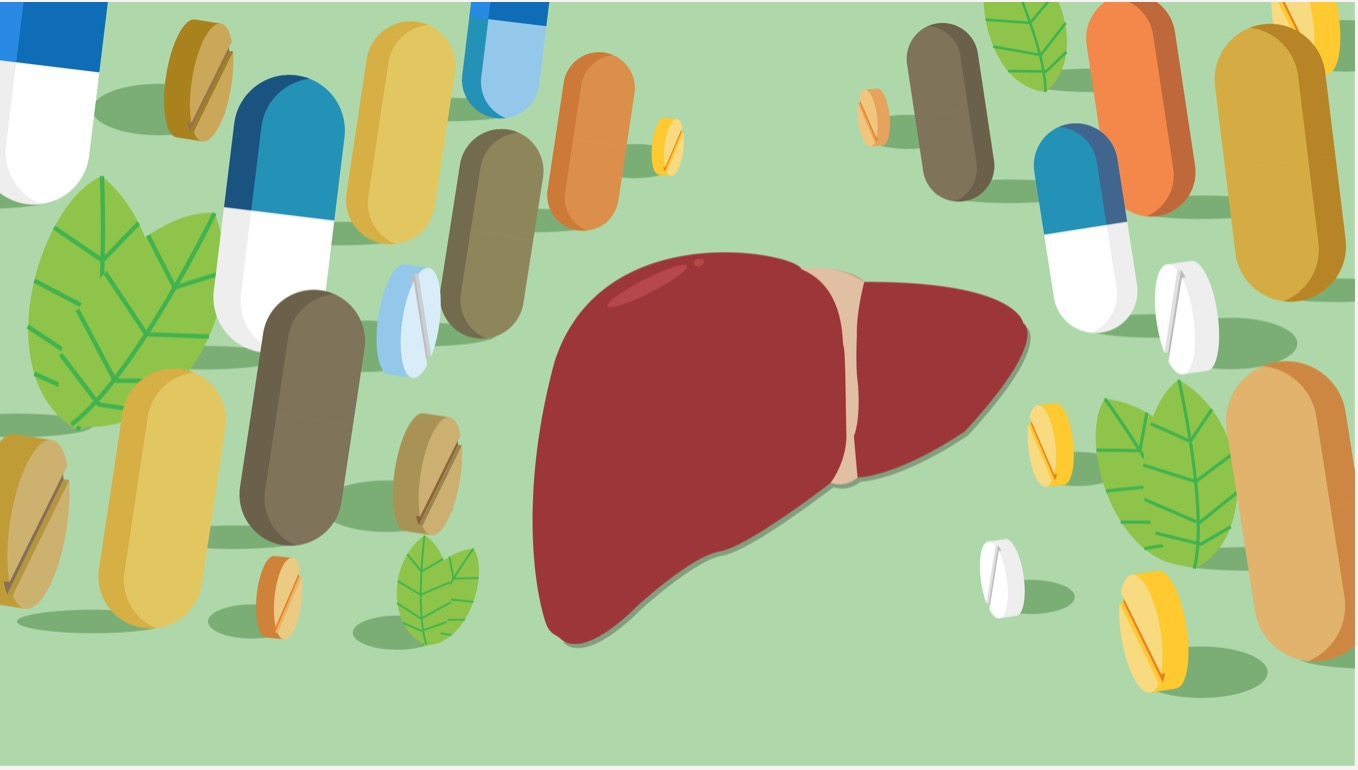The liver is a vital organ for medications. There are two main ways the liver is involved:
- breaking down (metabolizing) certain medications
- being injured (or adverse effect) from medications
Many oral medications are absorbed from your stomach into your bloodstream. The medicine then travels to your liver through the portal vein.
Phase 1: In the liver, the absorbed medication is exposed to an enzyme system called the Cytochrome P450. These enzymes breakdown many medications to create new products (inactive, active or toxic metabolites).
Phase 2: Fortunately, the liver has a second phase of metabolism to further “neutralize” toxic metabolites to prevent harm.
Toxicity can happen in the event of a drug overdose. In these situations, the liver metabolism is overwhelmed and essentially can’t keep up in “neutralizing” the toxic metabolites. This can explain why some overdoses lead to liver failure.
In normal doses, after going through the liver, the active drug travels through the bloodstream to deliver its effect in the targeted area.
Drug induced liver injury (DILI) is a common term used when a medication causes harm to your liver. Risk factors include pre-existing liver disease (e.g. you already have hepatitis, fatty liver disease) or chronic alcohol use disorder. Age, obesity or pregnancy may contribute. Genetics can also play a part as the Cytochrome P450 enzymes work differently in different people. Drug interactions, dosage and the use of certain herbal medications can increase the risk as well.
Most cases of DILI are unpredictable and rare. When starting or adding a new medication to your regimen, ask about how it affects the liver. Is liver monitoring recommended? Should you be watching for symptoms of liver injury? Recognizing and early intervention is key to minimizing (reversing) liver injury from medications.
Future blog topics will examine the Cytochrome P450 system drug interactions.

